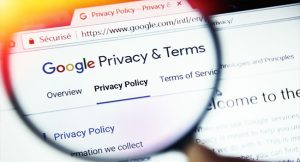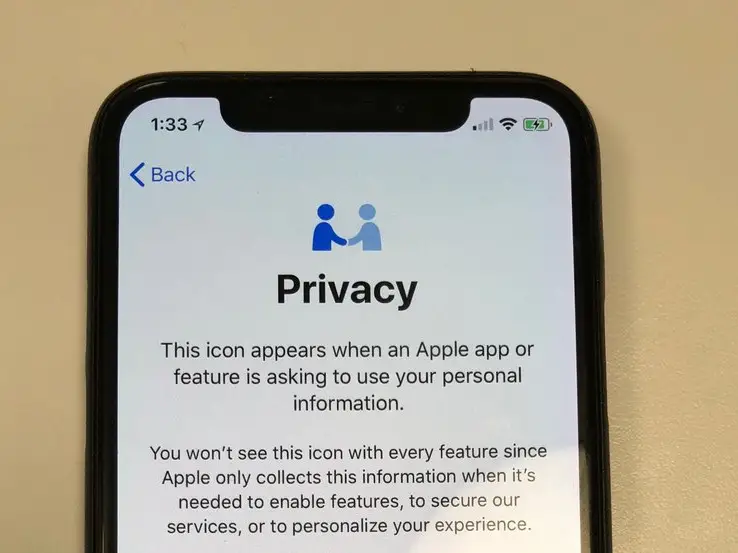There have been so many privacy violations, and technology is to blame. For Instance, Apple unveiled new privacy features for its Safari browser in June that would prevent web crawlers from tracing users’ online activity.
As the first tech executive to publicly advocate for a US data privacy law, Apple CEO Tim Cook has been at the forefront of the privacy debate.
The Pokemon business didn’t view itself as a tech business before the success of Pokemon Go in July 2016. It had an animated series, a line of video games, and a trading card game, but it needed information on every unique Pokemaniac.
Let’s examine each section below to learn more about how technological advancements impact privacy legislation.
The fact that technology now permits an individual to know such information does not make the news any less worthy of the protection the Founders fought for. Chief Justice John Roberts of the US Supreme Court in Riley v. California stated this.
So let’s get started and learn more about how the development of technology affects privacy legislation.
How tech companies are invading our privacy
According to the ACLU, people’s digital appearances now convey much more information about them, including their private lives.
Additionally, when the government accesses information, people lose authority over their data and privacy. As a consequence, the areas of equality, safety, and free speech are those that are most negatively impacted.
The National Security Agency, or NSA, is a company that assisted in code-breaking during World Wars 1 and 2, according to the Grand Valley State University Scholar Works.
It has also increased in terms of personnel and funding. The organization was permitted to spy on American people without a warrant after the 9/11 attacks. This is causing much more commotion than the Alexander 5 debate.
The NSA was observed gathering the surveillance powers that were constantly taken away and later secretly returned. So it appears the NSA spies locally and internationally without arousing public outcry. NSA surveillance of the foreign leader was also observed.
Technological Privacy Invasion Types
Did you realize that the two most prominent players, Facebook and Google, share the same goal and strategy? These businesses do provide customers with a range of free services.
What might therefore be their primary source of income? Well, it does give user information to advertisers. These companies can easily monitor the enormous database containing user information and traffic.
Additionally, they make a considerable profit by selling the information. However, many other businesses on a long list share the same goals and strategies as Google and Facebook.
But when user privacy was brought up, these two significant actors emerged. So now let’s check out the main current issues related to privacy and technology, aside from looking at the various businesses involved in disclosing the confidentiality of the individual. These are, however:
Location Tracking
Every few minutes, if the phone is on, it will automatically record the positions of the cell towers. As a result, mobile carriers have customer location data, but government officials also have access to it at any moment without a judge’s permission.
In addition, the government can collect information about you, including every detail of where you are and where you have been in the past, using other location-tracking technologies.
Medical and Genetic Privacy
Keeping your medical records private is crucial because genetic or medical information may reveal confidential or personal information. Maintaining control over such material is, therefore, essential.
As medical data are digitized, and genetic sequencing becomes faster and more affordable, the threats to autonomy and privacy grow.
National Identification
The proposals for building the national identification system have been developed over several decades. Additionally, it has included various forms like the driver’s uniform license and the national job database for E-Verify.
But they all have the same flaws, including:
- They would have no power.
- They would offer a fresh perspective on race and ethnic profiling.
- They would establish an internal passport system that further impairs civic and individual liberties.
Internet Privacy
Thanks to new technologies that simplify the process, businesses and governments can now more easily obtain the specifics of online activity.
The company can now quickly amass the individual’s information to sell it to the greatest bidder. However, at the same time, dated privacy laws and monitoring systems enable governments to track citizens like never before.
Workplace Privacy
It is unquestionably true that the employer has a legitimate stake in supervising the work to ensure productivity and efficiency at the workplace.
Beyond legitimate management concerns, employee monitoring operates more effectively and simplifies spying for unjustified business purposes.
The electronic surveillance of workers demonstrates the rise of an unprecedented and plutonic level of workplace surveillance.
How has Technology Affected our Privacy?
Did you know that technological advancement has now trumped our privacy protection, making it simple for businesses and the government to monitor our digital footprints?
Yet, without their knowledge, the collection of confidential information about a person is growing and is increasingly setting off alarms.
As a result, the fusion of technology and privacy impacts some privacy regulations, and it is crucial to have some security measures in place for individuals. Below are how our privacy have been intruded on by Technology and the good or bad that comes with it
The emergence of Surveillance Technologies
This isn’t so terrible because of our world of rapid technological advancement! In addition to providing many benefits and conveniences, it paved the way for new rash spying methods and monitoring technologies.
Moreover, it expands the capabilities of location-tracking technologies, imaging tools, communications surveillance systems, and other tools for gathering a person’s specific data.
Public disclosure is becoming more typical outside of the digital sphere as well. For example, closed-circuit television (CCTV) systems are used for widespread surveillance in cities like New York, Chicago, and Los Angeles.
These systems record people’s faces and actions. These installations are incredibly intrusive, thanks to the developments of audio capture and facial recognition technology.
Read Also: 8 Ways to troubleshoot common laptop or PC issues
Mass Surveillance Displays Our Lives
Social media has largely taken over people’s everyday lives. It can be challenging to imagine living without social media when approximately 7 in 10 adults in the United States use it.
People use these digital platforms to communicate with friends and family, exchange information, stay updated on the news, and discover entertainment.
Even though they are already prevalent—69% of adults have active Facebook accounts, and 37% have accounts with Instagram, which is owned by Facebook—popular social networking sites like Facebook and Instagram continue to look for new ways to engage their users.
On both platforms, most users claim to use them regularly or frequently.
Invasion of identity, privacy, and self-expression destroyed trust
Although it’s easy to look back in disbelief at the covert monitoring of historical figures like Ernest Hemingway and Martin Luther King Jr., the average person today can access more data than feasible.
Even when people express concern about who gets access to their data, many cannot alter their habits due to the normalization of mass surveillance.
The diminished confidence in others results from this loss of privacy, significantly affecting mental health. Avoiding it is more complex when everyone else is also being watched. It can be mistrust of neighbors, family, the government, and yourself. Trust loss paves the way for other consequences in a person’s existence.

Changing Relationships
When you’re being closely watched, any personal connection could become dangerous. People being watched constantly fret about how they are viewed, whether through street cameras or social media monitoring, making it challenging to have genuine interactions with others.
For Instance, when two people share an inside joke, they are no longer restricted to just two people. Anyone observing or listening may have a different perception (or misinterpretation) of the circumstance.
Absence of Trust in Government
Mass surveillance directly impacts people’s confidence in the government because most people are against the government’s spying on its citizens.
The possibility of being treated as a state enemy doesn’t sit well with people, even though it may be acceptable for suspected terrorists to have their calls monitored, their faces tracked, and their transactions recorded.
It identifies a crisis of faith: How can the populace have faith in the government if it has no faith in the populace?
Less Control
A significant advantage is feeling in control of your existence. Stress levels will only rise as that influence is reduced. People being watched can’t afford the mistakes that wouldn’t matter privately.
People being watched can’t afford minor mistakes in a private setting, particularly if making them public would have serious repercussions. Who is watching and ready to report you are unknown.
Remember that most people use social media, and they do so for various reasons that make disconnecting difficult or undesirable.
It makes sense that more people choose to make their accounts private. But unfortunately, employers frequently have other methods to obtain this private information.
Increased Conformity
The degree of uncertainty brought on by living under surveillance encourages people to conform, which is perhaps the most harmful impact of all.
People who are being monitored tend to self-censor; it becomes dangerous to voice opposing views when it’s uncertain whether you’ll be painted as a potential criminal (or worse).
In general, people change their actions so they are not overly offensive to the viewer, which limits their ability to express themselves and can exacerbate the problems stated above.
Conclusion
People sometimes ignore worries about privacy invasion in favor of concentrating on the advantages of these potent contemporary technologies.
Social media promises to foster long-distance relationships, give the familiar person a powerful voice, and immediately disseminate information. Security and safety are promised by CCTV systems, which continuously watch for criminal behavior.
However, neither the possibility of abuse nor the psychological consequences of being constantly watched over should be disregarded.

